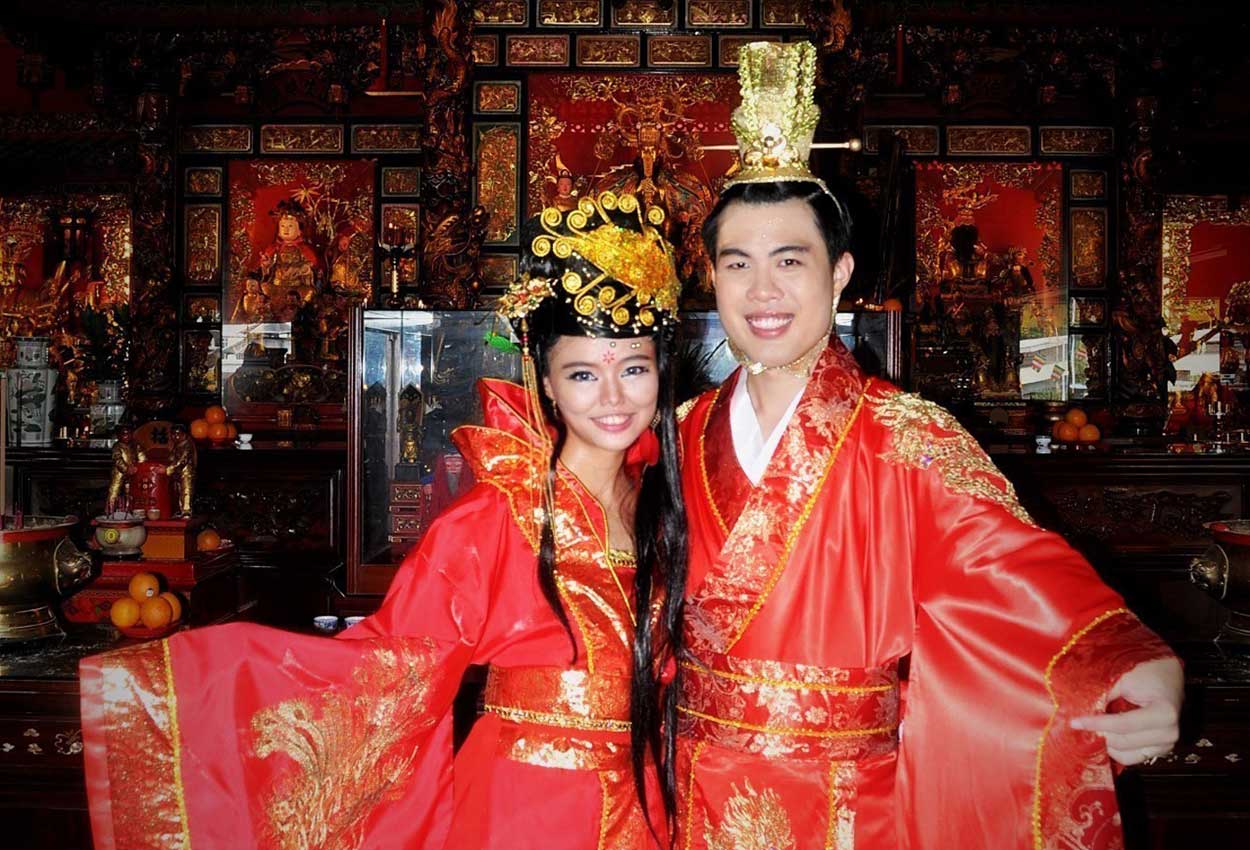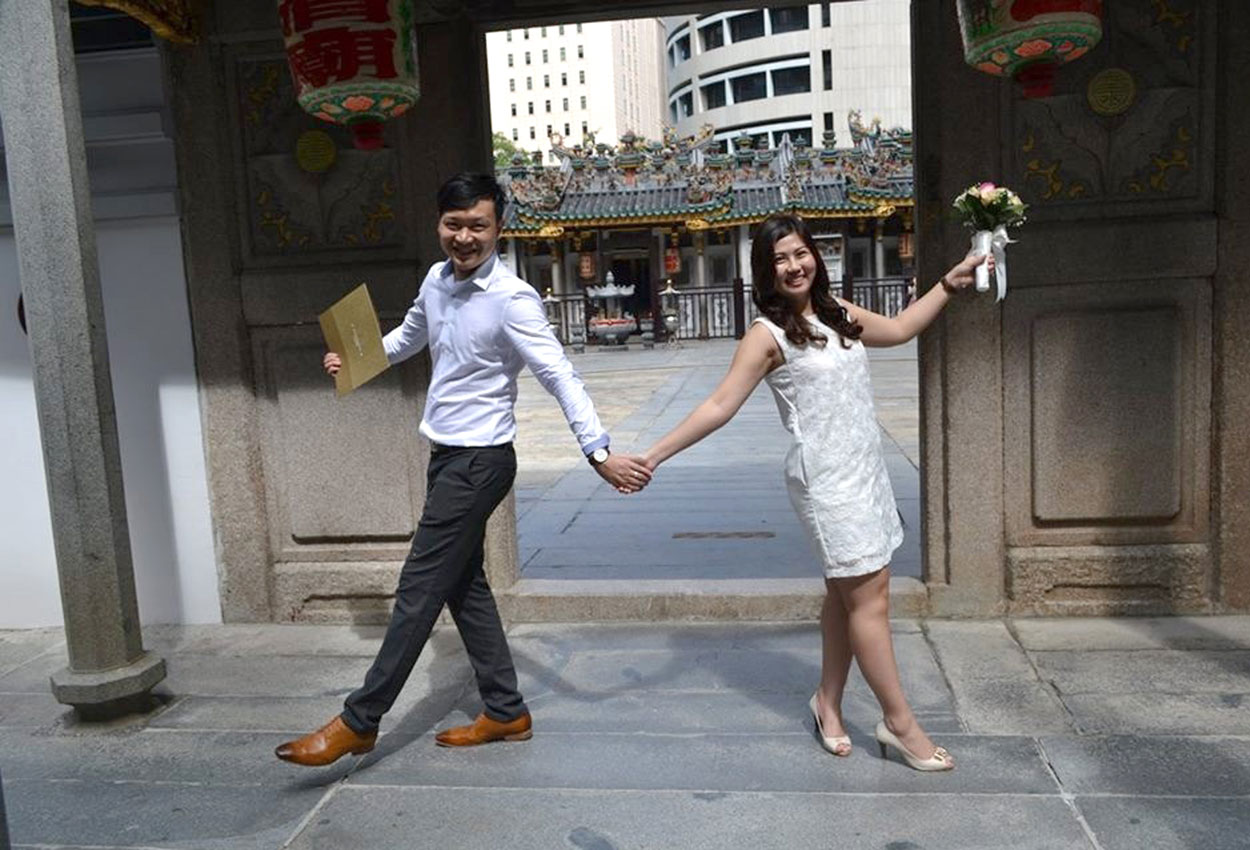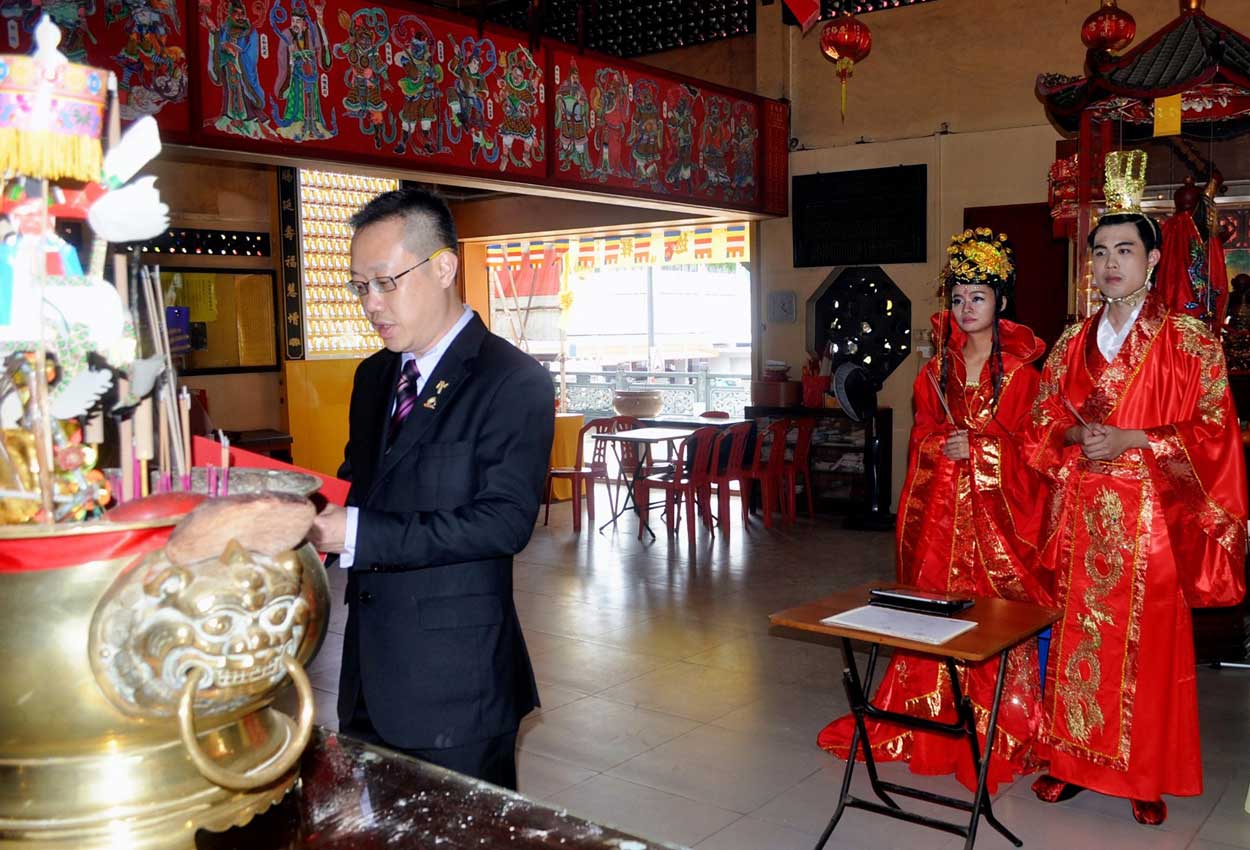When Mr Alan Lim and Ms Teo Yen Ting showed up at Kong Hock Keng Temple last June decked out in red robes and golden headdresses, they drew curious looks from devotees, not least because they looked like they had just stepped out of China’s Han Dynasty.
The couple were at the Chinese temple in Telok Blangah to tie the knot in front of Taoist deities such as the Jade Emperor, Monkey King and Nezha the Third Lotus Prince.
“I used to help out at this temple for many years. We wanted to get married at some place special, and our faith is important,” said Mr Lim, 26, who works as a career coach.
The Taoists met each other during a Taoist Federation (Singapore) youth committee conference in 2013. They share an interest in Chinese history and culture – something they wanted to commemorate on their special day.

Clad in traditional costumes bought from e-commerce site Taobao, Mr Lim and Ms Teo, 23, a part-time tutor, offered fruits and joss sticks to the deities. Their solemniser, Master Adrian Long, 50, then recited religious scriptures before pronouncing them man and wife.
They are among a number of young couples now holding their matrimonial ceremonies at Chinese temples. About 20 to 30 do so each year, said Master Long, who is a deputy registrar of marriages and a special committee member with the Taoist Federation (Singapore). “Some met at these temples, while others simply want to seek blessings for a blissful marriage,” he said. “Some also pray to their ancestors whose ashes are in the same temple.”
The Singapore Buddhist Federation (SBF) has noticed more couples getting hitched at Buddhist venues, said the federation’s president, Venerable Seck Kwang Phing, 63. He is also a solemniser.
While there were 10 to 20 weddings five years ago, there are now at least 100 in temples or at Buddhist institutions each year, he said. They are usually held at the SBF building in Geylang or Bishan’s Kong Meng San Phor Kark See Monastery.
“I usually remind the bride and groom to be a good couple according to the Buddhist scriptures. For example, husband and wife must treat each other equally,” said Venerable Seck. Depending on the couple’s preference, the solemnisation ceremony is accompanied by the chanting of sutra and offerings to Shakyamuni Buddha.
“To do good, the couple can also offer lunch, robes or any daily necessities to the monks.”
People of other faiths often get married at their places of worship, such as churches, mosques and Hindu temples.
The Sultan Mosque in Kampong Glam, for instance, hosts about three to four weddings each week. These are officiated by a kadi, who solemnises Muslim marriages.
Mosque manager Zainal Abidin Omar, 47, said more couples have been getting married at the venue since it was restored a year ago.
“Youngsters like to have their weddings here because they want to get blessings from God,” he said, adding that they can have their reception at the nearby restaurants.

For some, the venue represents both faith and fate. Software engineer Mah Chun How, 34, and accounts assistant Kang Say See, 29, got married at the Yueh Hai Ching Temple in Raffles Place last month.
Before they met in 2014, they had visited the temple to ask Yue Lao, the elder under the moon deity believed to be a matchmaker, for a partner. “We got to know each other not too long after,” said Mr Mah.
“The temple is very special to us. We believe Yue Lao brought us together.”

This article was first published on Oct 13, 2016.
Get a copy of The Straits Times or go to straitstimes.com for more stories.






